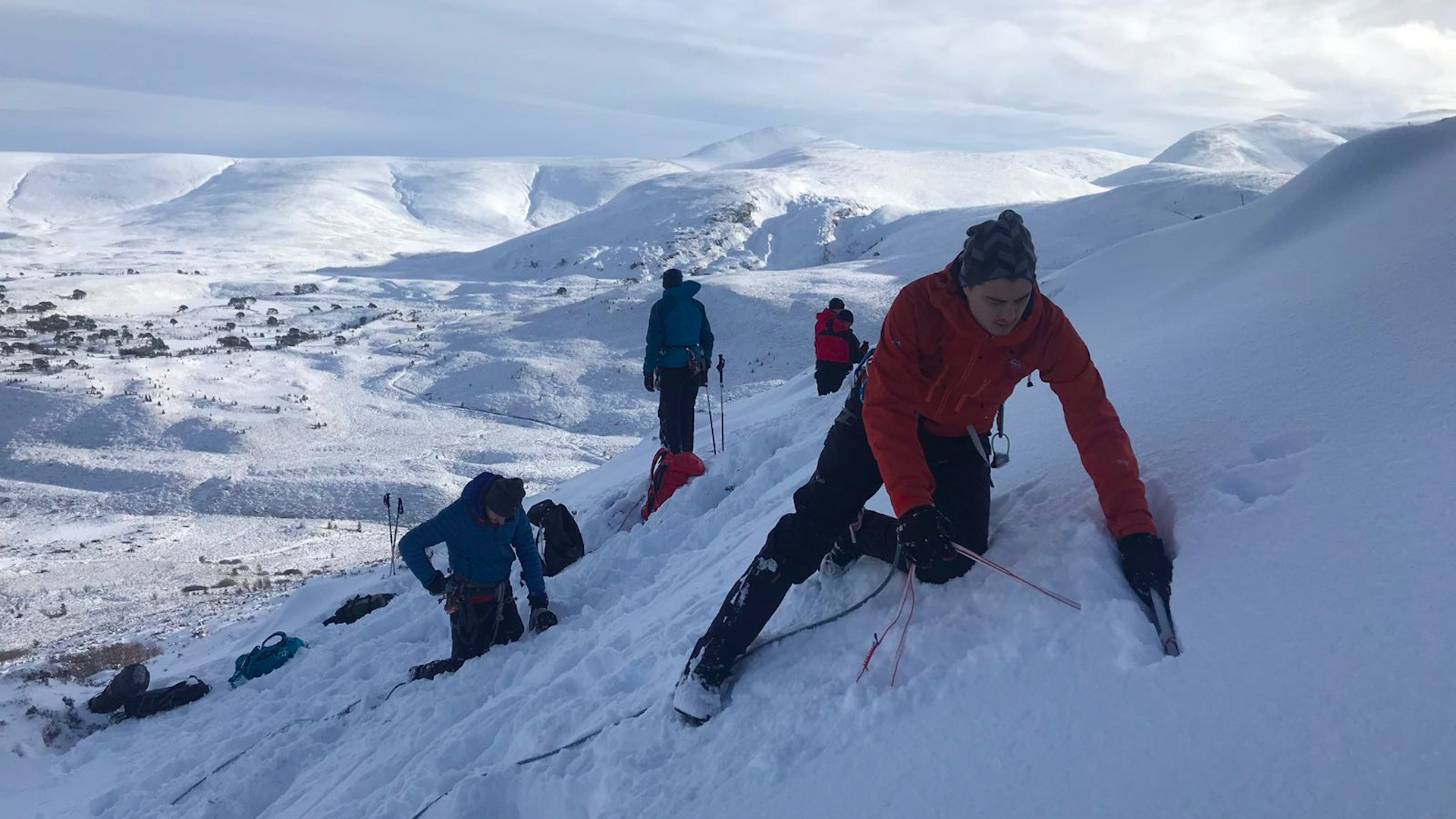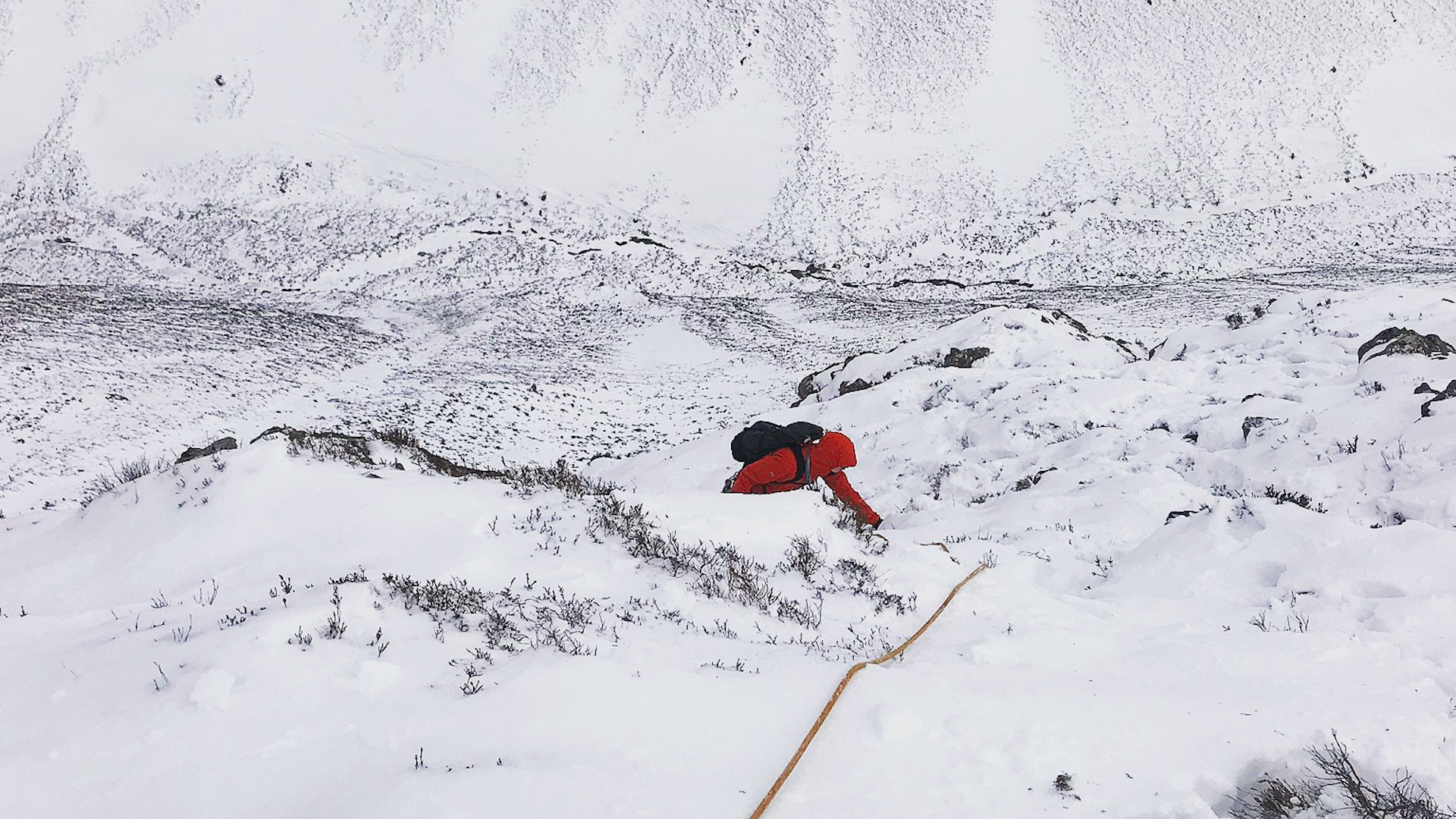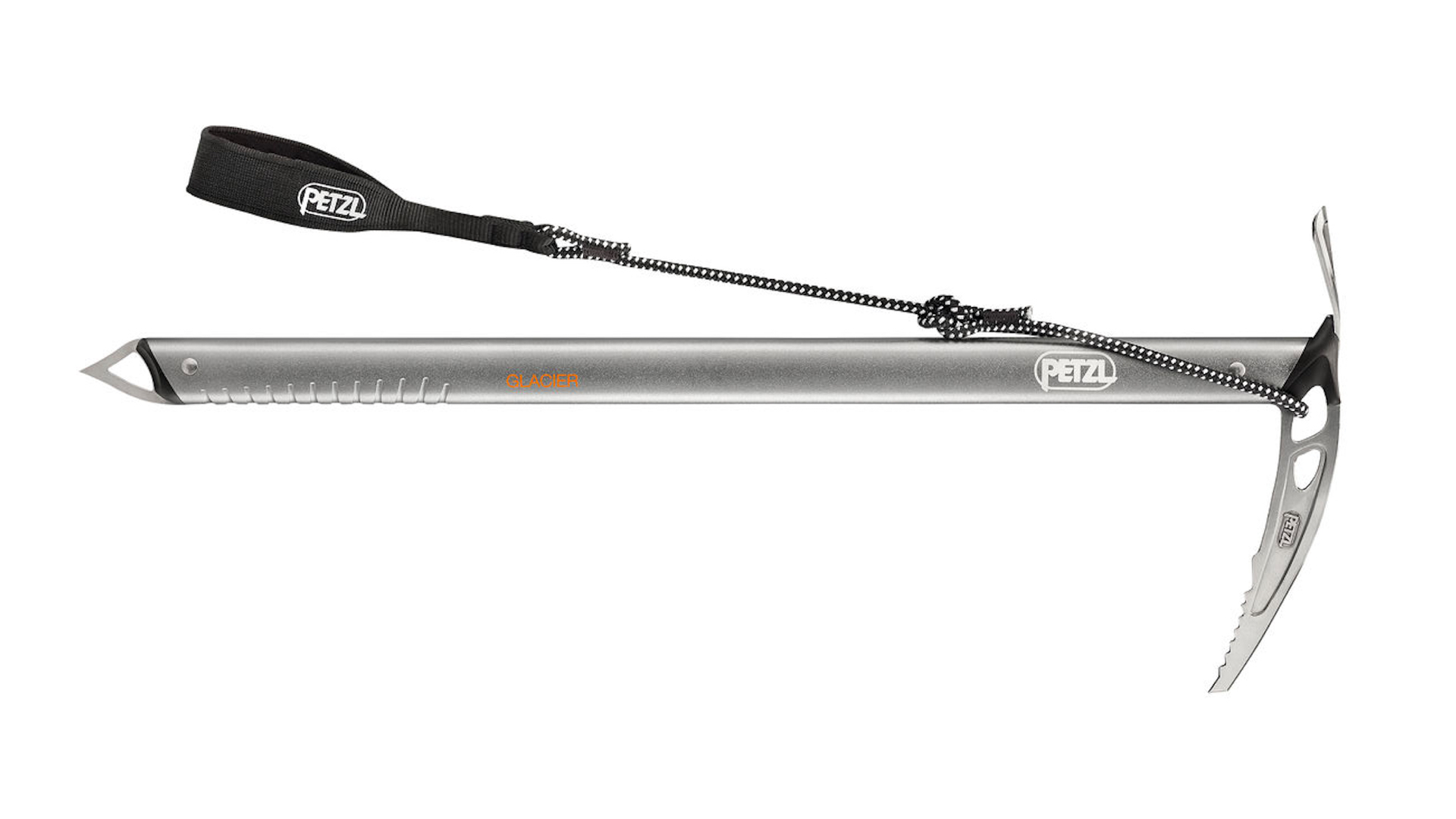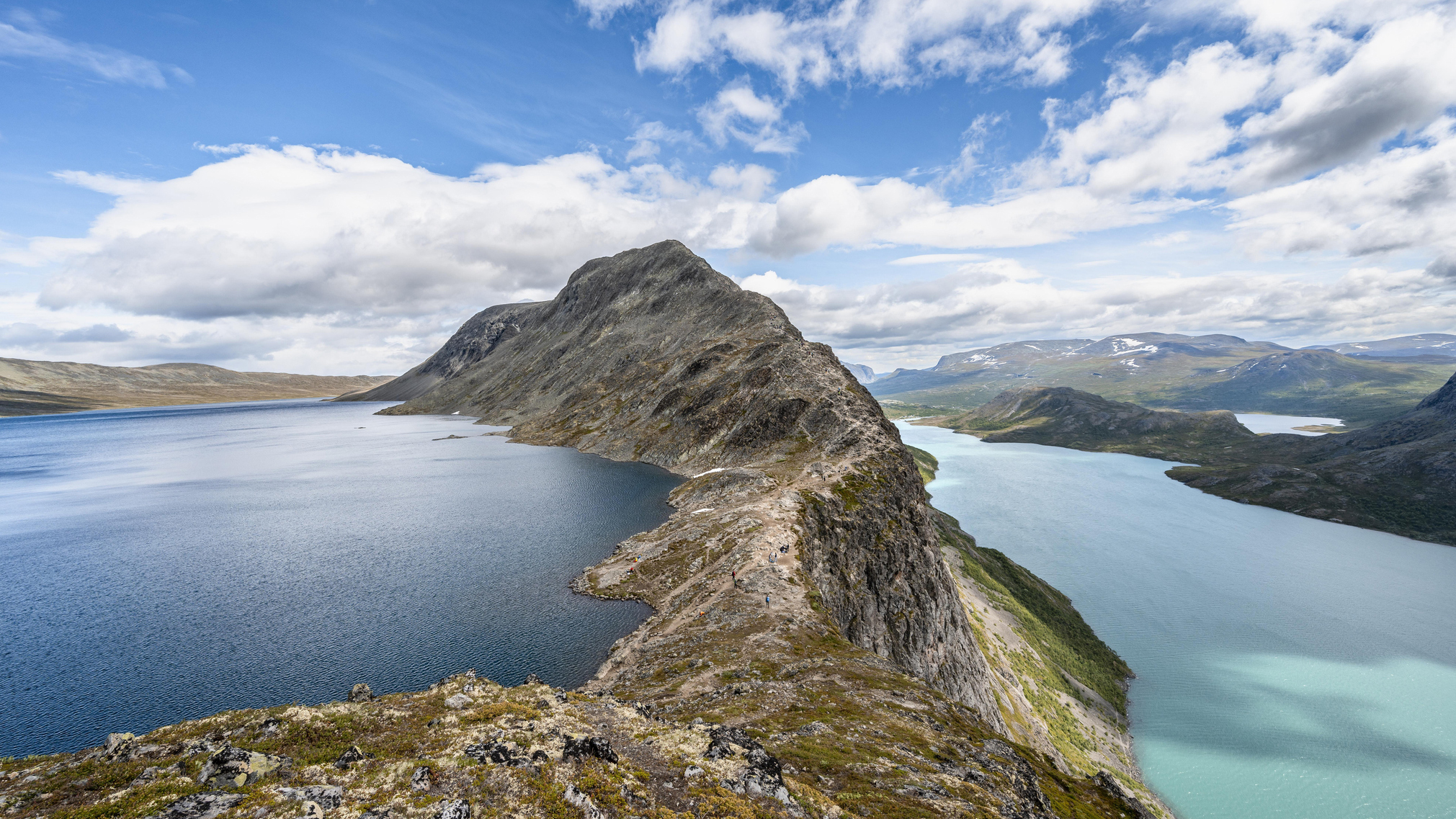Advnture Verdict
Light and comfortable in the hand but surprisingly capable when called upon thanks to its versatile pick and adze, this is a very accomplished axe for winter hillwalking.
Pros
- +
Comfortable in the hand
- +
Lightweight
- +
Good self-arresting performance
Cons
- -
Machined shaft but no rubber grip
- -
Not outstanding steep climbing ability
You can trust Advnture
Petzl Glacier: first impressions
As its name suggests, the Petzl Glacier is an axe primarily designed for glacier travel. But actually, its versatile design has earned it a reputation as one of the best all-round hillwalking and mountaineering ice axes on the market today. It boasts a surprisingly capable pick and adze, a comfortable and streamlined head shape and a lightweight but sturdy build that ensures it is both easy to carry and nice to use.
The Petzl Glacier is also reasonably priced. It’s even got slightly cheaper over the years, with incremental improvements that have made it an even more attractive proposition. Although the basic design remains the same, it now comes in three different lengths and is supplied with Petzl’s simple but effective LINKIN leash.
However, the Glacier’s most immediately noticeable characteristic is its remarkably light weight. It has an all-steel head but weight-wise, isn’t far off some ultralight all-aluminum touring axes. This makes it a great axe for long mountain days or even extended hut-to-hut tours, as it isn’t tiring to carry either in the hand or strapped to a pack.
• RRP: $90 (US)/ £74 (UK)
• Weight (60cm version): 350g / 12.3oz
• Materials: Welded steel head, anodized aluminum shaft
• Available lengths 60cm / 23½in, 68cm / 26½in, 75cm / 29½in
Petzl Glacier: on the hills

We really enjoyed testing this axe in the frozen mountains of Snowdonia, as well as on a winter mountaineering course in the Cairngorms. The slim, streamlined head ensures it feels pretty comfortable in the hand, whether carried pick forward (self-belay position) or adze forward (self-arrest position). In traditional piolet mode, the sharp spike also means it works well for balance and support – and plunges quickly for emergency or backup belay use (see how to use an ice axe for more information on their uses in the field).
Some users will appreciate the security of the supplied leash, but it’s easy to remove if preferred. We ended up doing so, but only because the wrist loop is a bit snug if you’re wearing your best hiking gloves or mitts.
As already noted, the Glacier’s light weight has many benefits. The downside of that is that it doesn’t give the most positive feedback when placing the pick in snow or ice. But the pick itself is slightly more aggressive than most basic hillwalking axes, so it’s still a competent performer when self-arresting or for daggering up slopes. There are machined grooves on the lower part of the shaft to provide additional grip while swinging the axe too, which help to prevent it slipping – though these are relatively shallow.

The adze design is great. It has fairly wide shoulders and a sharp edge. This makes it easy to clear out cracks and crevices for placing nuts, hexes or cams, as well as when cutting steps or digging “T-slots” snow bollards and anchors. Only that lack of head weight limits performance in this regard. But the head itself has a large cut-out that accommodates most carabiners too.
Overall, this axe is light enough to be an excellent companion on winter hillwalking days yet capable enough to perform reliably on easy to moderate graded winter climbs and scrambles, with some technical design elements that elevate it above most of the competition.
An outdoors writer and editor, Matt Jones has been testing kit in the field for nearly a decade. Having worked for both the Ramblers and the Scouts, he knows one or two things about walking and camping, and loves all things adventure, particularly long-distance backpacking, wild camping and climbing mountains – especially in Wales. He’s based in Snowdonia and last year thru-hiked the Cambrian Way, which runs for 298 miles from Cardiff to Conwy, with a total ascent of 73,700 feet – that’s nearly 2½ times the height of Everest. Follow Matt on Instagram and Twitter.


